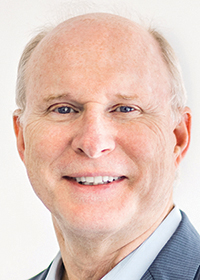Unlocking Arkansas’ potential: engineers and data scientists as economic catalysts
by December 17, 2024 8:09 am 492 views

At Heartland Forward, we understand economic growth in the 21st century is fueled by innovation—and innovation begins with education. Arkansas has a unique opportunity to leverage engineering, computer science and data science to strengthen its economy and create a skilled workforce for the future. Our latest research reveals how targeted investments in STEM (science, technology, engineering and mathematics) education and workforce development can drive transformative economic outcomes.
The Case for STEM
Arkansas currently lags behind the national average in STEM workforce representation, with engineers and computer scientists comprising only 2.3% of its labor force. This gap is significant compared to states leading in innovation, where this figure often exceeds 4%. Heartland Forward’s research shows that increasing this share to just 3.4% by 2038 could boost Arkansas’ GDP by 1.6%, generating an additional $3.9 billion in annual economic activity and creating 19,000 new jobs statewide.
The ripple effect of such growth is enormous. Engineers and data scientists are not confined to traditional tech roles; their skills are critical to industries like construction, technology and advanced manufacturing. These professionals are at the forefront of solving complex problems, driving innovation and enabling efficiency across sectors.
Building the Talent Pipeline
To achieve these ambitious goals, Arkansas must double its output of engineering and computer science graduates over the next 15 years. This is no small task. Institutions like the University of Arkansas College of Engineering are pivotal in this effort, but further investment is required. Increasing the number of graduates by 50% alone could add up to $2.4 billion annually to the state economy, while doubling the number of graduates and research funding would bring Arkansas closer to the full $3.9 billion potential impact.
Investment in education and infrastructure is a clear path forward. Expanding scholarships, improving research facilities and recruiting top-tier faculty are essential steps. These efforts would enhance the university system’s capacity to train future engineers and scientists while attracting talent from across the nation.

Catalytic Change
The economic benefits of a more robust STEM workforce extend beyond job creation. Each engineering or computer science job has a significant multiplier effect, contributing an average of $203,000 annually to the state economy. Additionally, professionals in these fields drive technological advancements that improve efficiency and productivity across all sectors. For example, data scientists help businesses optimize supply chains, while engineers contribute to advancements in automation and sustainable energy.
Arkansas’ current challenges include its low production of patents, limited university R&D investment and a relatively small number of doctorates in engineering and computer science. Addressing these gaps is critical. For example, in the last decade university R&D in Arkansas rose from $201 to $262 per worker to the state’s total GDP, but this remains well below the national average. A strategic focus on increasing R&D funding would not only support innovation but also attract companies seeking to collaborate with research institutions.
Delivering on the Potential
Heartland Forward has been a strong advocate for initiatives like rootEd Arkansas, which ensures rural students have access to high-quality STEM education. Expanding such programs statewide would help close educational gaps and ensure more Arkansans are prepared for high-demand – and high-paying, careers. Partnerships between academic institutions and private industries are paramount to both short-term and long-term success. Companies can play an active role by offering internships, mentorship programs and research funding to bridge the gap between education and workforce needs.
States like Utah have demonstrated the transformative power of a coordinated approach to STEM education. By prioritizing investment in engineering and computer science, Utah has built one of the most dynamic economies in the country. Arkansas has the potential to do the same. The time to act is now.
Our state’s future depends on its ability to innovate, and that starts with building a stronger foundation in STEM here at home. By committing to this vision, we can unlock our unique economic opportunities, create thousands of high-paying jobs and establish Arkansas as a hub for innovation in the heartland. Let’s seize this moment to invest in education and drive long-term prosperity for our state and its residents.
For more details, explore Heartland Forward’s full report here.
Editor’s note: Ross DeVol is CEO and Chairman of Heartland Forward, a Northwest Arkansas “think and do tank.” The opinions expressed are those of the author.
